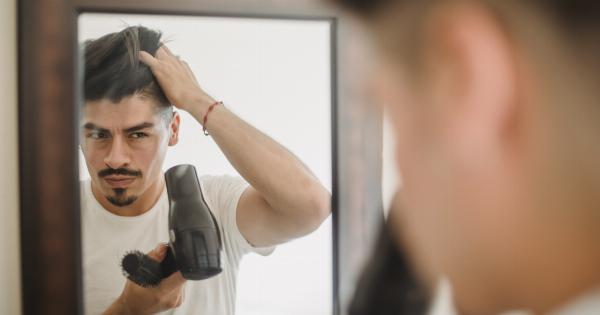The thyroid gland is a small, butterfly-shaped gland located in the neck that produces hormones that help regulate metabolism.
When the thyroid is not functioning properly, it can cause a variety of symptoms throughout the body, including changes in hair growth and quality. Here, we will explore the link between thyroid problems and hair changes.
What are thyroid problems?
Thyroid problems refer to any condition that affects the thyroid gland’s ability to produce hormones or maintain proper hormone levels. The two most common thyroid disorders are hypothyroidism and hyperthyroidism.
Hypothyroidism and hair changes
Hypothyroidism occurs when the thyroid gland does not produce enough thyroid hormones. This can result in a slowed metabolism and a range of symptoms, including hair changes.
People with hypothyroidism may experience hair thinning or loss, dry or brittle hair, and a coarse or rough texture to the hair. Hair changes occur when the thyroid hormone levels in the body are low, affecting the growth and quality of hair follicles.
Hyperthyroidism and hair changes
Hyperthyroidism occurs when the thyroid gland produces too much thyroid hormone. This can lead to an increased metabolism and a range of symptoms, including hair changes.
People with hyperthyroidism may experience hair thinning or loss, fine or limp hair, and hair that breaks easily. Hair changes occur when the thyroid hormone levels in the body are high, affecting the growth and quality of hair follicles.
Other hair changes associated with thyroid problems
In addition to hair thinning, loss, and changes in texture, people with thyroid problems may also experience changes in hair color. Hypothyroidism can cause hair to become dry and brittle, leading to a loss of shine and a dull appearance.
Hyperthyroidism, on the other hand, can cause hair to become thin and fragile, leading to breakage and split ends.
What to do if you have hair changes related to thyroid problems?
If you have noticed changes in your hair growth or quality that may be related to thyroid problems, it is important to speak with your doctor. Your doctor may perform a physical exam and run blood tests to check your thyroid hormone levels.
If you are diagnosed with a thyroid disorder, your doctor may prescribe medication or recommend other treatments to help regulate your hormone levels and improve your hair changes.
Other causes of hair changes
It is important to note that hair changes may be caused by a variety of factors, including genetics, age, stress, and certain medical conditions.
In addition to thyroid problems, hair changes may also be caused by other hormonal imbalances, medications, and nutritional deficiencies.
Preventing hair changes related to thyroid problems
While some hair changes related to thyroid problems may be inevitable, there are steps you can take to minimize their impact.
Maintaining a healthy diet, staying hydrated, and minimizing stress can all help promote healthy hair growth and reduce the effects of thyroid-related hair changes. Additionally, using quality hair care products and avoiding harsh chemicals and heat treatments can help keep your hair healthy and strong.
The bottom line
The link between thyroid problems and hair changes is well-established, with thyroid disorders often leading to hair thinning, loss, and changes in texture and color.
If you are experiencing changes in your hair growth and quality, it is important to speak with your doctor to determine if thyroid problems may be the underlying cause.

























